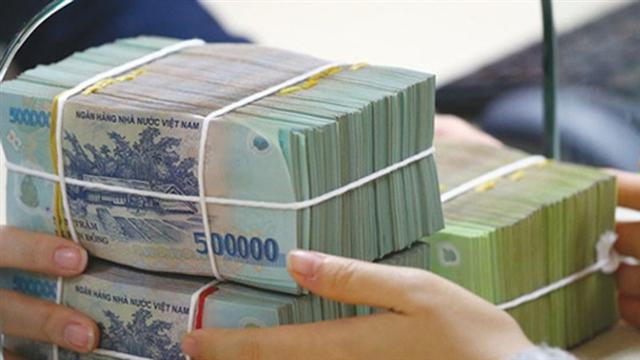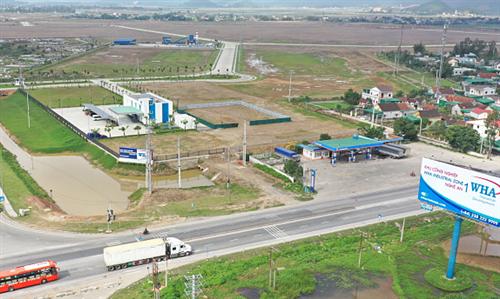Vietnam maintains fiscal surplus of US$2 billion in Q1 amid Covid-19
Vietnam maintains fiscal surplus of US$2 billion in Q1 amid Covid-19
During the first quarter, budget revenue collection reached VND391 trillion (US$16.75 billion), equivalent to 25.9% of the year's plan and up 1.8% year-on-year.
Vietnam recorded a fiscal surplus of VND47.9 trillion (US$2.05 billion) in the first quarter (Q1) this year, compared to a surplus of VND65.4 trillion (US$2.8 billion) recorded in the same period last year, according to the Ministry of Finance (MoF).

Illustrative photo.
|
During the period, budget revenue collection reached VND391 trillion (US$16.75 billion), equivalent to 25.9% of the year's plan and up 1.8% year-on-year.
Upon breaking down, domestic revenue during the period stood at VND324.7 trillion (US$13.91 billion), equivalent to 25.7% of the year's estimate and up 3.6% year-on-year.
The MoF said growing impacts of the pandemic are causing disruptions to operations of the majority of firms in the fields of aviation, tourism, hospitality, and catering services, among others, putting pressure on state budget revenue, not to mention a sharp decline in crude oil prices on global markets from US$65 per barrel to US$25 – 27.
At a meeting on April 16, Director General of the General Department of Taxation Cao Anh Tuan said revenue from value added tax expanded at a modest rate of 2.5% year-on-year in Q1, significantly lower from a growth rate of 8% in the previous quarter.
Similarly, excise tax revenue increased by 4.6% year-on-year, less than half of the 9.5% growth in Q4 of 2019.
Meanwhile, state budget expenditures totaled VND343.1 (US$14.7 billion), equivalent to 19.6% of the year's plan and up 8.7% year-on-year. Of the total, regular spending reached VND246.6 trillion (US$10.56 billion) or 23.3% of the plan and up 4% year-on-year. Capital expenditure reached VND61.6 trillion (US$2.63 billion) or 13.1% of the estimate and up 31.8%; and interest payment, VND33.8 trillion (US$1.44 billion) or 28.6%, up 4%.
Minister of Finance Dinh Tien Dung previously said a state budget revenue fallout is inevitable in the context of economic slowdown.
Dung said in the most optimistic scenario when the pandemic ends in Q2, GDP growth comes in at 5.3% and oil prices average at US$35 per barrel, the state budget may lose VND140 – 150 trillion (US$6 – 6.43 billion). The losses would be bigger in case GDP grows at less than 5%.
Dung recommended government agencies, provinces and cities reduce regular spending, especially expenses related to meetings, conferences and working trips.
The Ministry of Finance estimated fiscal deficit could increase to 5 – 5.1% of GDP, significantly higher than the target of 3.4% (excluding debt principal repayments) set in December 2019 and Fitch’s estimated 3.8%.
Dung said in this circumstance, the realization of public disbursement plan is essential to maintain positive economic growth and stimulate social investment.
In 2020, the target amount is VND700 trillion (US$30 billion), more than double the disbursed amount in 2019 at VND312 trillion (US$13.4 billion).
As of March 15, the disbursed amount of public investment fund stood at VND39.83 trillion (US$1.7 billion) equivalent to 8.86% of the target set by the National Assembly.

























